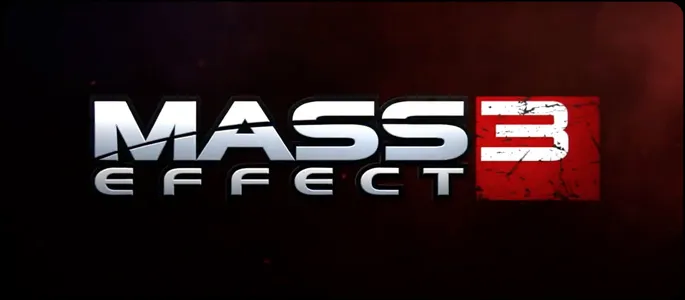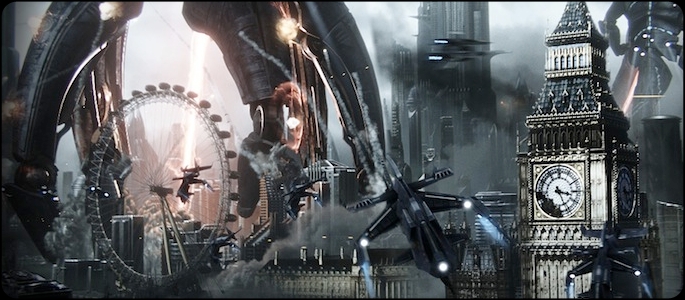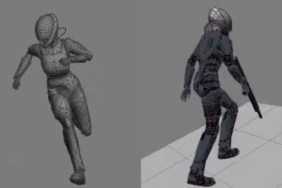
The following is an editorial on Mass Effect 3‘s ending and contains massive endgame and ending spoilers. Do not read this editorial if you have not finished the game.
THE CATALYST CHILD IS A CENTURIES-OLD A.I. THAT IS AFRAID OF ORGANIC LIFE AND LIES TO COMMANDER SHEPARD
In the final events of Mass Effect 3, Commander Shepard enters the Citadel one last time to use it as the Catalyst, the missing piece of the Crucible that focuses the device’s energy to destroy the Reapers. As he makes his way into the chamber of the Catalyst, he encounters an A.I. in the form of a child, who tells Shepard that he employs the Reapers as a means of stopping the chaos of war between synthetics and organics. What the Reapers do, according to the Catalyst Child, is “preserve” the most evolved organic races. Shepard is told that he is the first organic to ever have reached the Catalyst chamber and is offered three choices: control the Reapers, synthesize himself with synthetics to form a new future for organics and synthetics, or destroy all synthetic life, including all of the Reapers and Geth.
The Catalyst Child’s outline of his perspective on the synthetics vs. organics issue reeks of fear and mistrust of organics. He speaks of constant conflict between synthetics and organics as if it’s a foregone conclusion. He offers no option that allows the full destruction of the Reapers and nothing else. He is so convinced that the conflict between the two will continue that he has tied the survival of all synthetic life to the Reapers’ existence, despite even the newly found peace that can be struck by Shepard in the game, which could possibly signal the beginning of a peaceful co-existence. He is frightened of organics and may lack the will to finish them off completely, the perspective to realize what he’s been doing is not an appropriate solution, or the will to admit to Shepard that he needs them for something. He has been around for countless cycles, summoning Reapers to address the “problem” of the role of organic life as he sees fit, leaving him to offer three options that reflect only his views on the possibilities at hand with no others. He speaks to Shepard on these possibilities as if what he’s saying is absolute truth, with the intent of getting Shepard to believe him for the reasons that he outlines. He cannot allow any possible inkling of self-gain to Shepard, for Shepard would catch onto him, and he may not gain his intended outcome(s) as a result.
Two of the three options proposed — synthesis and control — perpetuate his species, synthetics. They have no losses whatsoever in these scenarios, they only gain. In control, the Reapers would gain a brand-new consciousness to add to their own and Shepard would fall into the same folly as The Illusive Man, who, upon realization of the power of his own indoctrination, commits suicide in one of the endings. The offer of “control” is a complete sham and one that just allows the Reapers to continue to do what they’ve been doing.
Synthesis represents a utopian vision for the Catalyst Child, one that he cannot help but ideally embrace. In his misguided assertions about organics, synthetics, and what they have to gain from one another, he essentially fuses the fate of the creators to the created. They become interdependent. Whereas synthetics may require organics for certain tasks (i.e. reactivation or rebuilding after a natural disaster that takes them offline or destroys them), organics could very well exist without synthetics. He cannot accept mere co-existence — synthetics must transcend the “master-servant” relationship and bind themselves to organic life as complete equals. What perpetuates the existence of one will now perpetuate the existence of the other. What harms one now harms the other. With no means to separate the two, everyone now works together towards one “perfect” state.
Why consider offering destruction at all, then? The child makes reference to the existence of the Crucible and how it may have led him to believe that he may not be seeing things as clearly as he initially believed. Organics have fought hard to reach the catalyst and ensure the Reapers’ destruction. He has come to realize that he has lost sight of the full scale of the problem and may not have considered that this is not the way. The Catalyst Child, however, is limited by his own determination to control the outcome of the future. He has appointed himself as the sole factor of salvation and destruction: all life can only come to pass as he sees it and on his terms. Control is what he’s been doing, Synthesis is what he hopes to achieve, and Destruction is the undoing of it all. If he cannot determine the outcome of the galaxy any longer, then he will leave nothing to chance. He will destroy all synthetic life and leave the organics to have the peace that they so badly desire, because he may not be inclined to allow synthetics to continue in the “servant” role. Organics will lose their technological “crutches” and not continue to have the possibility to destroy synthetics any time that they wish.
Also, consider the contrast between destruction, synthesis, and control in his appeal to Shepard’s aspirations of intergalactic peace and preservation. He paints destruction as the death of the Reapers and all synthetic life as well, which ties Shepard’s hands, as he just created peace with the Geth. He paints synthesis as a next true phase of evolution in which everyone would, for lack of a better term, “win.” He paints control as a quick fix solution — if he controls them, they’ll just go away. Of course, that statement is just one of the gargantuan lies spoken by the Catalyst Child in his exchange with the galaxy’s would-be savior, Commander Shepard.








